2025 DevOps Roadmap
DevOps Career Roadmap
Here’s what DevOps is all about: people use the latest tools to create new processes so they can continuously deploy applications into production.
If you want to be a DevOps engineer, here’s the 2023 DevOps roadmap you’ll want to follow:
- Master an Agile framework like Scrum.
- Become a competent coder.
- Make Linux your OS of choice.
- Get into the flow of Git.
- Prioritize automation.
- Containerize everything.
- Cluster with Kubernetes.
- Build a relationship with NoSQL.
- Get lost in the AWS cloud.
- Master the runtime.
Master an Agile framework
One trait all DevOps engineers share is agility.
If you want to get hired as a DevOps engineer, you must commit to the four tenets in the Agile Manifesto and believe in its 12 principles.
You should also be familiar with an Agile framework or methodology such as Scrum or Kanban.
With an understanding of Agile, and knowledge of how to work well in teams, you set yourself apart from others in a competitive IT career market.
Read the Agile Manifesto and commit to its principles.
Become a coder
You’ll go nowhere as a DevOps engineer if you don’t know how to code.
- Learn Rust if you want to be close to the bare metal.
- Learn JavaScript for the client side.
- Learn Java for the middle tier.
- Learn Python for scripting.
You don’t have to master all of them, but you do need to master at least one of them.
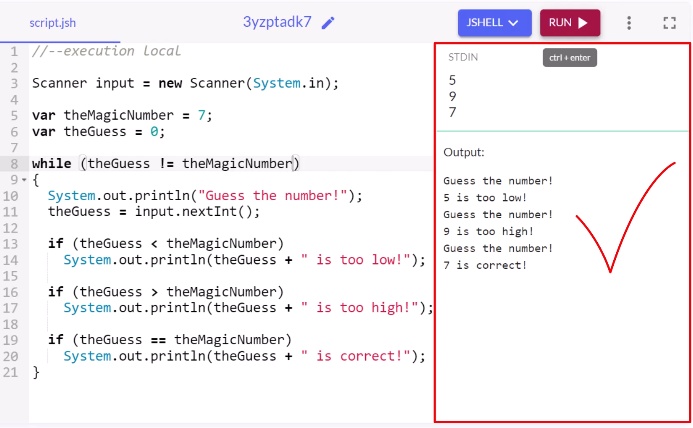
There are many online resources available to help you to learn a programming language such as Java or Python.
Make Linux your go-to OS
It doesn’t matter if it’s Mint, Ubuntu or Fedora — a DevOps engineer must know Linux.
Windows still rules on the desktop, and Android rules in the mobile space. In the backend, Linux dominates.
A DevOps engineer needs to know how to accomplish basic tasks in Linux, such as the following:
- Work at the Linux command line.
- Write basic shell scripts.
- Manage file permissions with chmod.
- Monitor file, network and memory metrics.
To automate, manage or optimize any system on the backend, a DevOps engineer must know how to work with Linux.
Get into Git
All continuous deployment processes begin with a pull from a version control system. There are many such systems, but most are based on Git. Along your DevOps roadmap journey, you should learn about one or more of the various offerings in the Git ecosystem, and more importantly the differences between them:
- Git.
- GitHub.
- GitLab.
- BitBucket.
You also must grasp the fundamentals of Git, including the following tasks:
- How to clone a remote GitHub repo.
- How to merge branches together.
- How to resolve merge conflicts.
- How to undo commits.
- How to rebase a history of commits.
Knowledge of a Git workflow such as GitFlow or GitHub flow is a necessity as well.
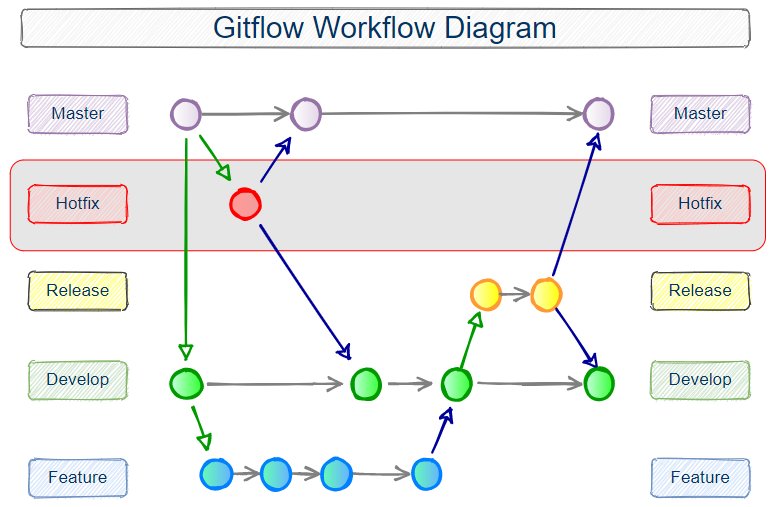
All DevOps engineers must be familiar with Git merging and branching.
Prioritize automation
Part of understating automation is getting some hands-on experience with CI/CD tooling.
The build is where the pipeline problems usually happen. That means you must learn a build automation tool including Maven, Gradle or C-Make.
You’ll also need to know how to package applications and prepare them for deployment.
The ultimate goal of DevOps is to continuously deploy code into production. That means you must master at least one CI/CD tool such as the following:
- Jenkins.
- Bamboo.
- TeamCity.
- Travis CI.
- GitHub Actions.
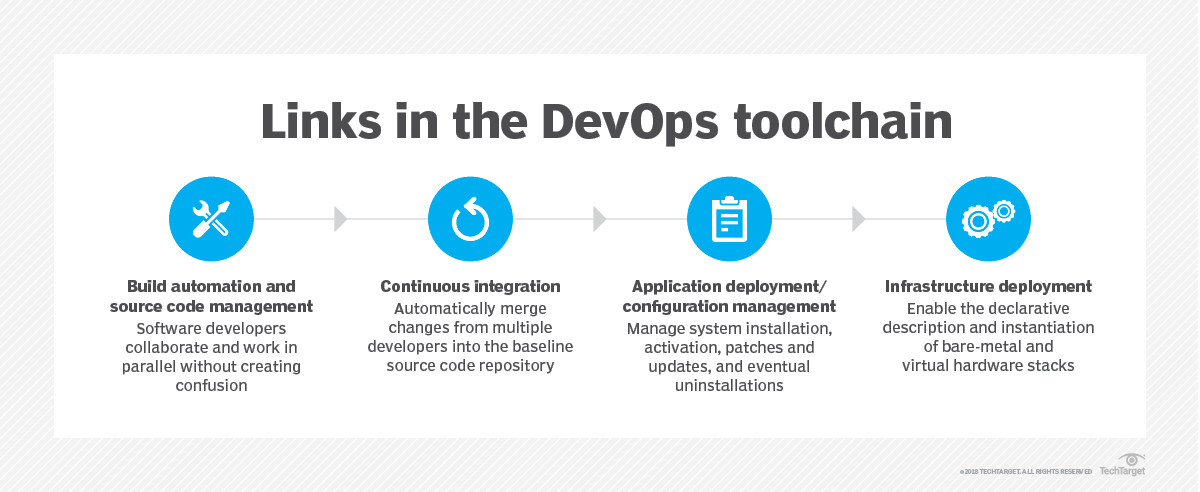
Concepts including automation, continuous integration, configuration management and infrastructure as code are all key to DevOps.
Containerize everything with Docker
For process isolation, and to achieve dev-prod parity, Docker is a must.
There are only a dozen or so Docker commands you’ll need to know cold to be competent with this powerful containerization technology. They include the following:
- docker pull.
- docker create.
- docker build.
- docker push.
- docker ps.
- docker images.
- docker run.
Learn how to run apps such as Nginx in a container, or deploy Spring Boot apps inside an Alpine image, and you will be of great value to your DevOps team.
Cluster your deployments with Kubernetes
Docker containers don’t scale on their own. To serve applications through a host of Docker containers, you’ll need an orchestration tool such as Kubernetes.
Key Kubernetes concepts a DevOps engineer must know include:
- Kubernetes networking.
- Kubernetes deployments.
- Kubernetes storage types.
- Kubernetes daemon sets.
- Ingress controllers and node types.
An overall understanding of the Kubernetes architecture and how master nodes interact with worker nodes will go a long way.
Jump from SQL to NoSQL
Relational databases were all the rage in the past, but global scalability to support massive cloud systems and social media networks requires NoSQL.
An important stop on the DevOps roadmap is the ability to perform tasks such as the following:
- Work with loosely consistent data.
- Optimize NoSQL performance for global applications.
- De-normalize relational data for NoSQL systems.
NoSQL databases play an extremely important role to support modern enterprise infrastructure.
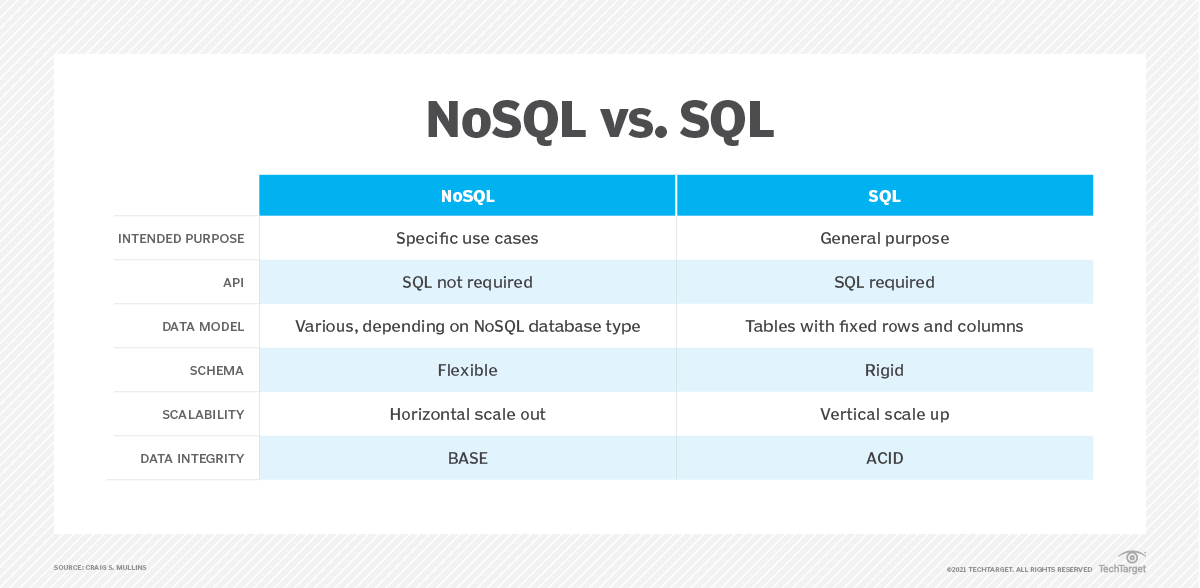
No DevOps roadmap is complete without a knowledge of NoSQL databases.
Know your way around the cloud
On-premise data centers are no longer the norm.
DevOps engineers must understand how to navigate around big cloud computing platforms, including the following:
- AWS.
- Microsoft Azure.
- Google Cloud.
- Alibaba.
Becoming Azure, GCP or AWS Certified will certainly help you advance your career.
Infrastructure-as-code tools such as Terraform fall into this category as well.
Learn to control the runtime
The ability to manage, monitor and optimize live applications is the final stop on the DevOps roadmap. This requires knowledge of the following tools and tasks:
- Prometheus for monitoring.
- Jaeger for tracing.
- Splunk for log analysis.
- Grafana for real-time visibility.
When you continuously deploy code into production, you must continuously monitor it as well.
You DevOps career roadmap
Those are the 11 most important stops on the DevOps roadmap.
Master these technologies and you’ll undoubtedly have a lucrative career as a DevOps engineer.
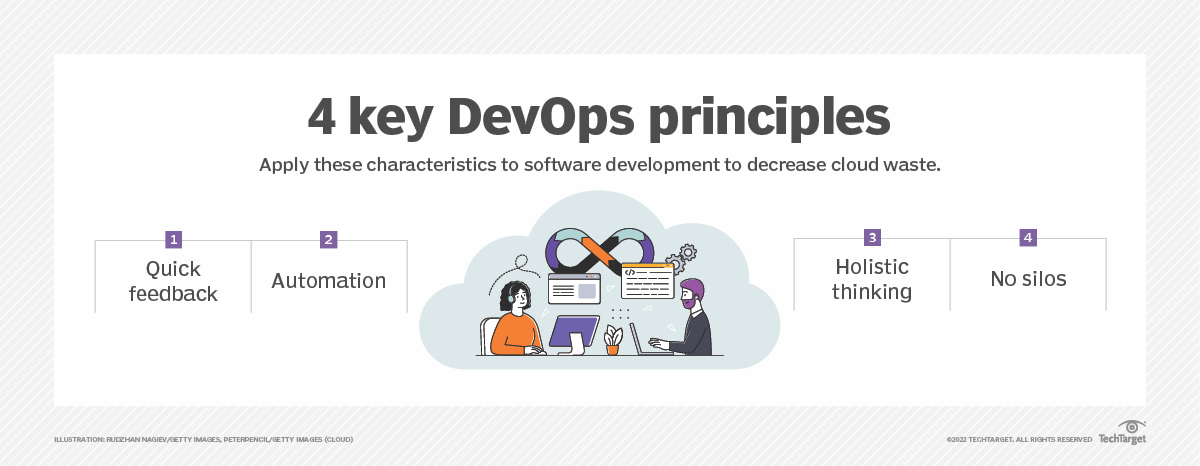
Feedback, automation, holistic thinking and breaking down silos are key concepts for a DevOps engineer to embrace.
 Cameron McKenzie is an AWS Certified AI Practitioner, Machine Learning Engineer, Solutions Architect and author of many popular books in the software development and Cloud Computing space. His growing YouTube channel training devs in Java, Spring, AI and ML has well over 30,000 subscribers.
Cameron McKenzie is an AWS Certified AI Practitioner, Machine Learning Engineer, Solutions Architect and author of many popular books in the software development and Cloud Computing space. His growing YouTube channel training devs in Java, Spring, AI and ML has well over 30,000 subscribers.



